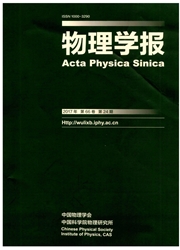

 中文摘要:
中文摘要:
降频助听算法是改善听障患者声音辨识能力的最安全有效的方法.本文以主观测试实验为手段,通过分析当前算法的声音识别能力的不足,提出一种自适应慢放降频算法.算法结合慢放算法和频移算法的优点,并能根据信号的频谱结构,自适应调整慢放因子,降低时域不同步性.并且,通过分析含噪信号和噪声信号的频谱关系,提出一种噪声下的慢放因子评估方法.实验结果显示,同其他降频算法相比,该算法可以提高15%到20%的识别率.在对听障患者的测试中,同传统的助听设备相比,平均识别率也获得显著改善.
 英文摘要:
英文摘要:
Frequency lowering algorithms are the most effective and secure for improving the auditory identification capability of hearingimpaired patients. Through analyzing the current algorithms by the test of subjective auditory approach, in the paper we propose an adaptive algorithm combining slow playback algorithm with frequency transition algorithm. The algorithm can adaptively adjust playback ratio according to the signal spectrum structure to reduce the desynchronization in time region. Furthermore, a method of evaluating the playback ratio in noise is designed based on the frequency spectrum relation between noise and noisy signal. Results showed that compared with other frequency lowering algorithms, the proposed algorithm can improve the auditory identification capability from 15% to 20%. In addition, in the test for heating-impaired person, the significant improvement on the average auditory identification capability is als0 obtained compared with the conventional hearing aid device.
 同期刊论文项目
同期刊论文项目
 同项目期刊论文
同项目期刊论文
 Chaos synchronization of fractional order time-delay Chen system and its application in secure commu
Chaos synchronization of fractional order time-delay Chen system and its application in secure commu Sound Source Localization of Digital Hearing Aids Using Wavelet Based Multivariate Statistical Metho
Sound Source Localization of Digital Hearing Aids Using Wavelet Based Multivariate Statistical Metho Acoustic feedback cancellation based on weighted adaptive projection subgradient method in hearing a
Acoustic feedback cancellation based on weighted adaptive projection subgradient method in hearing a Blind Multiple Access Interference Suppression Algorithm Based on Relaxed Subgradient Projection for
Blind Multiple Access Interference Suppression Algorithm Based on Relaxed Subgradient Projection for Two-dimensional canonical correlation analysis and its application in small sample size face recogni
Two-dimensional canonical correlation analysis and its application in small sample size face recogni 期刊信息
期刊信息
